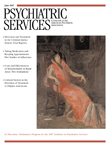The Body Never Lies: The Lingering Effects of Cruel Parenting
In this book, Alice Miller presents the idea that childhood abuse manifests as adult physical illness. She holds that the Fourth Commandment—honor your father and mother—keeps both patients and therapists from addressing the parents' role in, and responsibility for, the abuse. Instead of validating the child's fury at her parents, the unwitting therapist may collude with the child in excusing her parents or demanding forgiveness for their inadequacy. Miller states that by doing this, the patient's anger is repressed and is expressed instead by physical ailments. A wise therapist will allow the patient to express anger at her parents directly during therapy and validate those feelings, allowing the patient to release her dysfunctional attachment to her abusers.
That said, you needn't read the book at all, because it does not offer much else. Miller is a smart woman with valuable ideas, but this book falls short. There are three sections, a preface, an introduction to each section, and a postscript. The meat of the book is in the postscript, wherein Miller states her argument most cogently and sets forth her recommendations for effective treatment techniques. If you insist on reading the book, start there. The first section goes through a series of brief vignettes about famous people who died young and also had been abused as children. In this section I found myself wishing she had coauthored the book with Paul Harvey, because I, for one, need "the rest of the story." There is little detail in each vignette, sometimes to the point of leaving the reader hanging, and the argument is poorly supported by the data presented. The second section goes into more direct discussion of the ways in which the body harbors the effects of abuse, as well as a fair amount of autobiographical material. The final section, written as the diary of an adolescent girl, is a case study of anorexia. The girl is fictional, and the diary reads like, well, a fictional diary written by someone with an agenda.
In her books, Alice Miller repeatedly asks that society consider the ill effects of parenting that is coercive, abusive, and humiliating. She asks that we consider the everyday, commonplace humiliations as well as the cases of gross abuse. She has been a champion for children and people who were abused as children. In this book, she puts forth a reasonable hypothesis, the truth of which many people will intuitively recognize from their own practices. However, the expansion of that hypothesis falls short.



